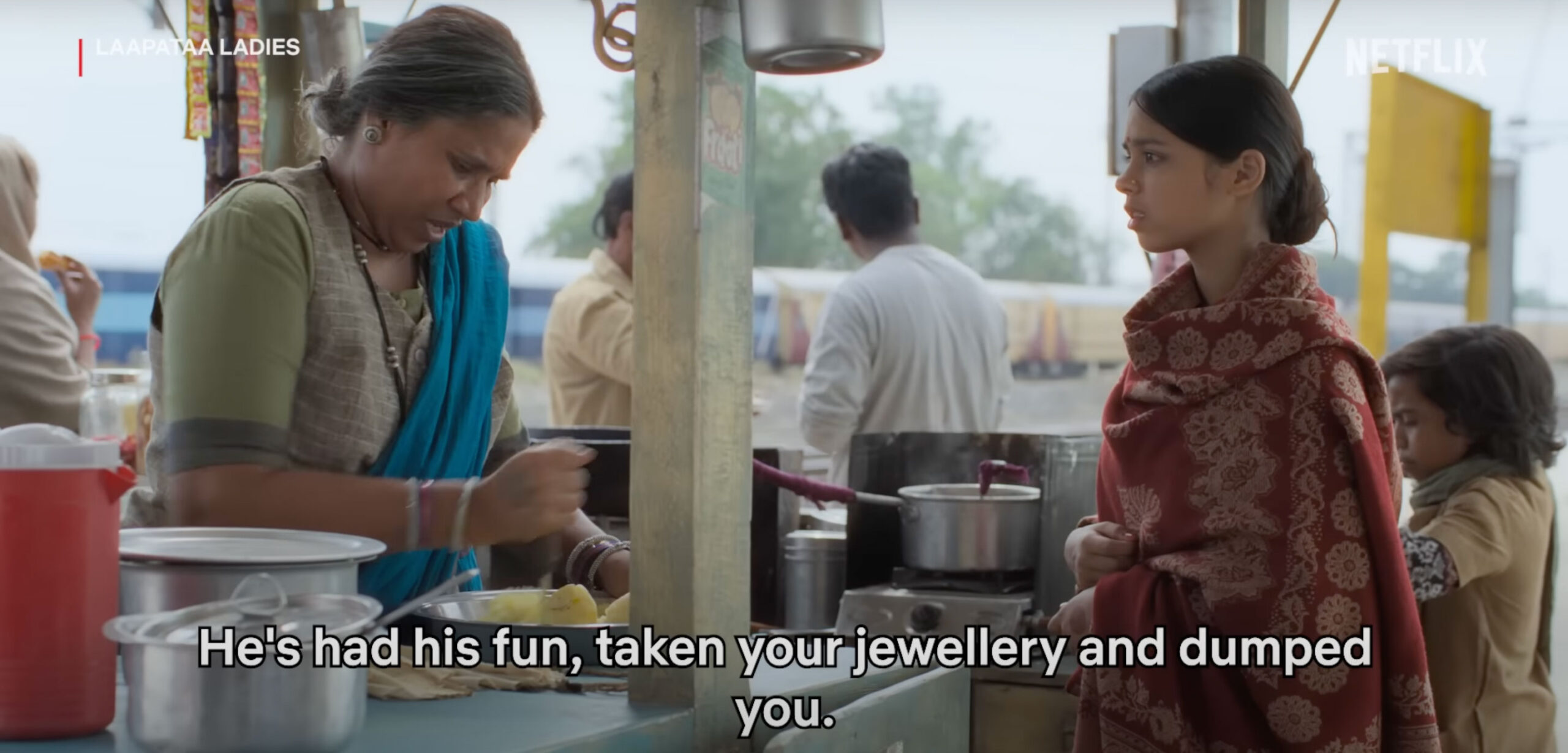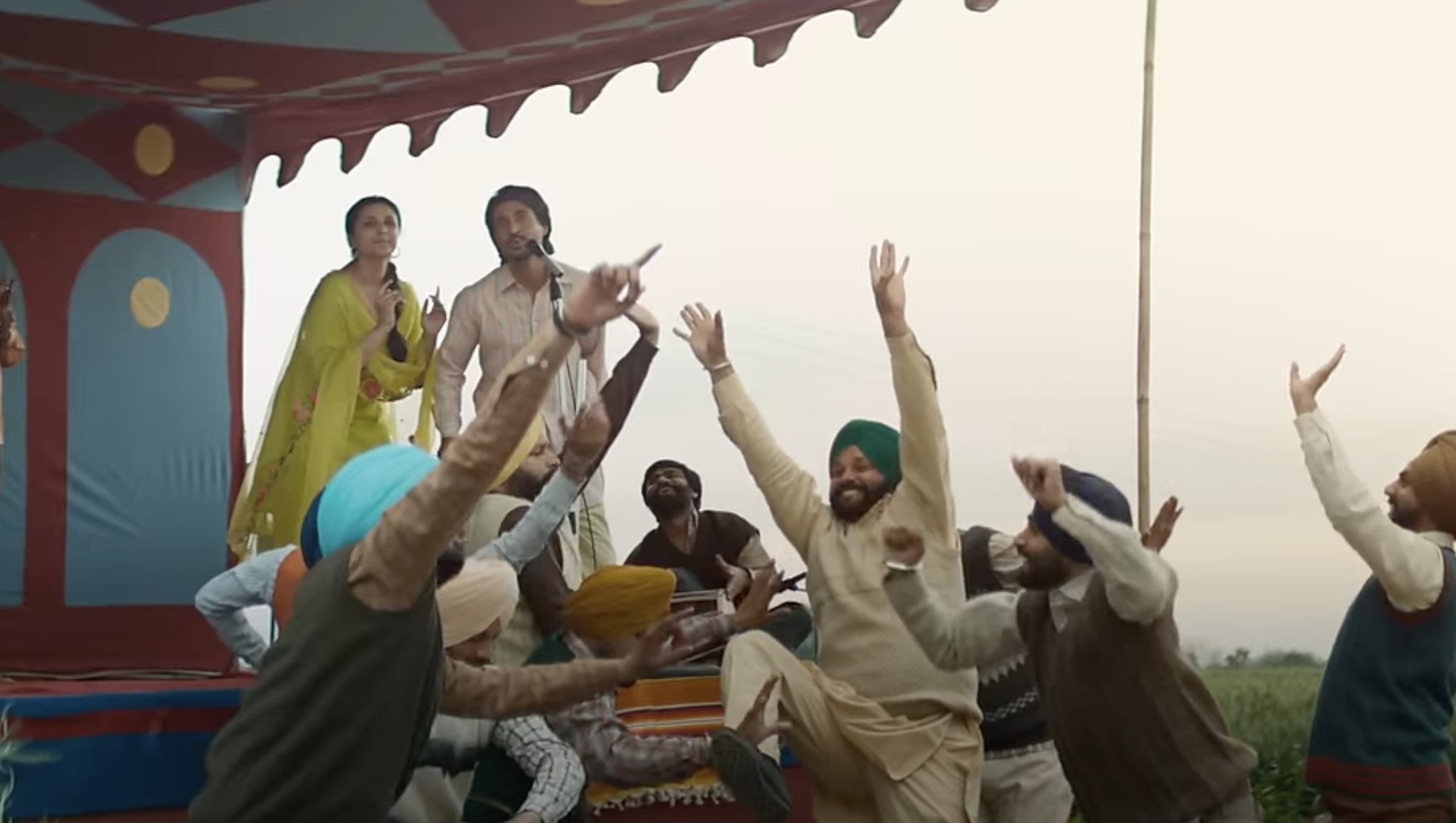Kushi, a 2023 Telugu-language romantic comedy film, directed by Shiva Nirvana and produced by Mythri Movie Makers, presents a narrative steeped in romance and family dynamics. Viplav, portrayed by Vijay Deverakonda, a BSNL employee seeks solace in Kashmir but inadvertently falls in love with Aradhya, played by Samantha.
The film impressively balances romantic elements with familial conflicts. Viplav and Aradhya hail from different backgrounds, their fathers representing the contrasting worldviews of atheism and spirituality – although we soon discover how deeply embedded social similarities override these apparent differences. At the heart of the film is their love story and the challenges they face, particularly regarding their fathers’ disagreement due to horoscope mismatch and “ideological differences”.
Chadarangam Srinivasa Rao (portrayed by Murali Sharma) is Aradhya’s father and Lenin Sathyam (played by Sachin Khedekar) is Viplav’s father. On the one hand, Rao is a renowned religious preacher who travels widely and delivers religious sermons. His character resembles Dhirendra Shastri of Bageshwar Dham, who claims to have solutions to diverse problems by invoking what is perceived as “divine power”. On the other hand, Lenin Sathyam, is an atheist and vehemently opposes religious zealots and superstitions. The character could have been inspired by Shyam Manav, affiliated with the All-India Superstition Eradication Committee, who challenges Dhirendra Shastri to substantiate his purported divine abilities. The narrative is peppered with the persistent ideological clashes between Chadarangam Srinivasa Rao and Lenin Sathyam.

When Lenin Viplav expresses his desire to marry Aradhya, these clashes are foregrounded. The two families eventually meet aboard a moving metro train and, while examining the horoscopes, Srinivasa Rao identifies a dosha (flaw). He asserts that to rectify this “defect”, a yagna (a religious ritual) must be performed; otherwise, the marriage will remain unsuccessful, and there will be no children. Lenin Sathyam dismisses this as superstition, with which his son also agrees. This disagreement between the two families remains unresolved, but Viplav and Aradhya still get married. As it turns out, Viplav and Aradhya’s attempts to conceive prove futile. Sathyam reluctantly agrees to holding the yagna. Jarringly, a ritual symbolic of brahmanical supremacy wins, rationality loses.
Both families gather in a temple courtyard for the purpose. Everyone is present except Lenin Sathyam. Finally, a dramatic music score plays, and Lenin Sathyam puts his foot inside the temple for the very first time. As the yagna nears completion, it begins to rain. At this moment, both fathers express remorse for their previous actions. Lenin Sathyam resolves to complete the yagna, even if he loses, as it would at least bring happiness to his son. The audience are treated to some brahmanical false humility and philosophizing on the part of Rao. He says this is not a victory for his beliefs or scriptures but a triumph of a father’s love for his child, and the fulfilment of a couple’s love for each other. He says the ongoing conflict between principles and dogmas has obscured the essence of humanity; that even if the scriptures are vindicated in the eyes of society, the true victory is lost if humanity is disregarded. Moreover, the film’s post-credits scene, reveal the birth of their daughter named “Kushi”, for she has brought “happiness” to the household.
But “happiness” at what cost? Lenin Sathyam has dedicated over three decades of his life to cultivating scientific thinking in his social interactions and in the upbringing of his children. He actively challenges the inertia of religious beliefs wherever he goes, emphasizing the power of science to all. Yet, a slightest hint of trouble in his son’s marriage and he is caught up in the unscientific web of Chadarangam Srinivasa Rao’s rituals. One is reminded of Ambedkar writing that “it is useless to make a distinction between the secular Brahmins and priestly Brahmins. Both are kith and kin. They are two arms of the same body, and one is bound to fight for the existence of the other.”
In the film, the character of Aradhya embodies a certain caste-based superiority stemming from her Brahmin heritage, which also implies a sense of culinary purity (vegetarian). After marriage, she learns to make non-vegetarian dishes but it’s not clear whether she has “defiled” herself by eating meat. There is a moment when her family unexpectedly pays the couple a visit and she surreptitiously throws a fish curry into the trash can.
All in all, the film is a hotchpotch of vegetarianism, casteism-reinforcing superstition, Sanatana Dharma, science, romance, “humanity” – all hallmarks of “progressive”, “liberal” upper-caste filmmakers and characters they have invented in their own image.
Forward Press also publishes books on Bahujan issues. Forward Press Books sheds light on the widespread problems as well as the finer aspects of Bahujan (Dalit, OBC, Adivasi, Nomadic, Pasmanda) society, culture, literature and politics. Contact us for a list of FP Books’ titles and to order. Mobile: +917827427311, Email: info@forwardmagazine.in)





